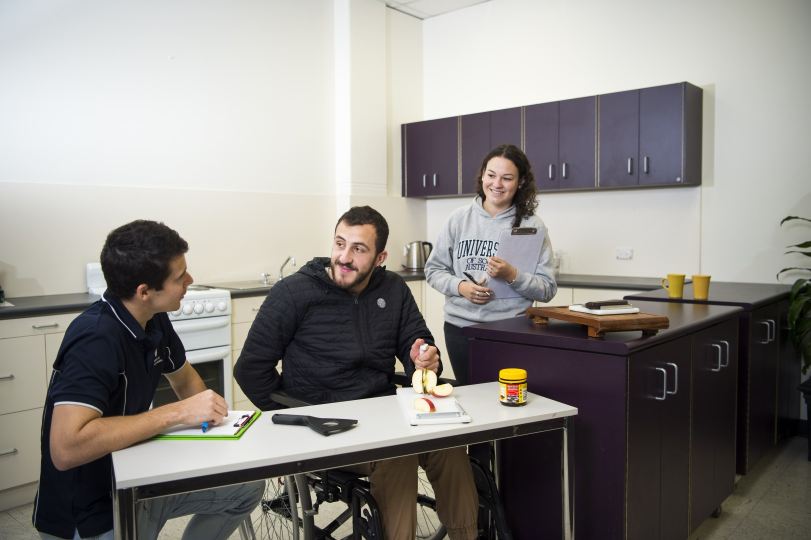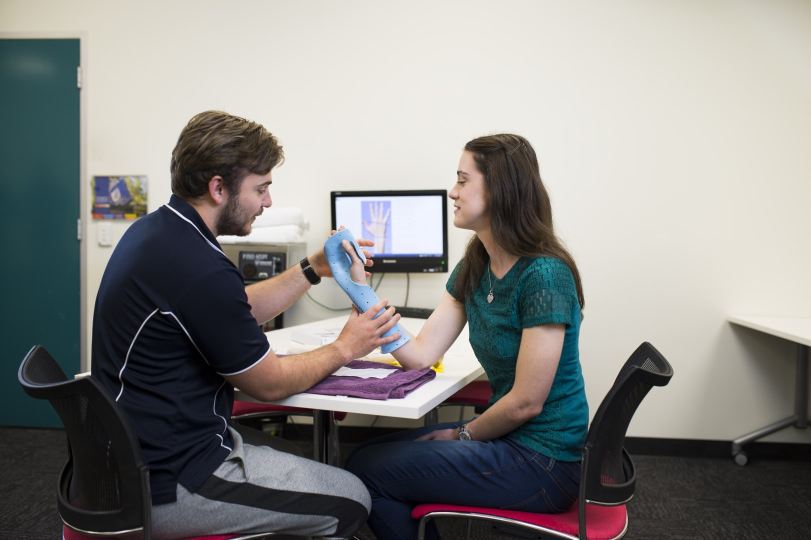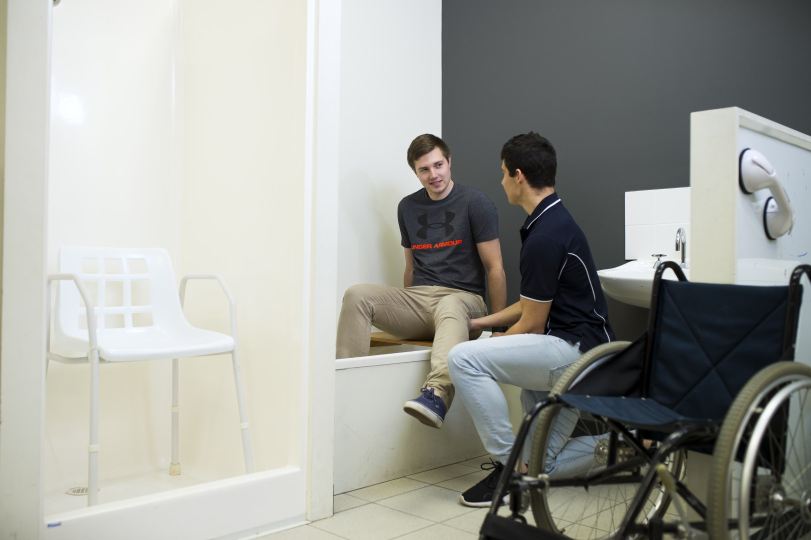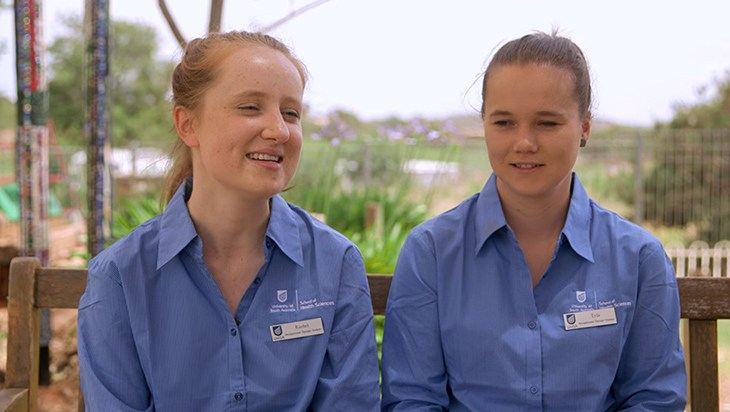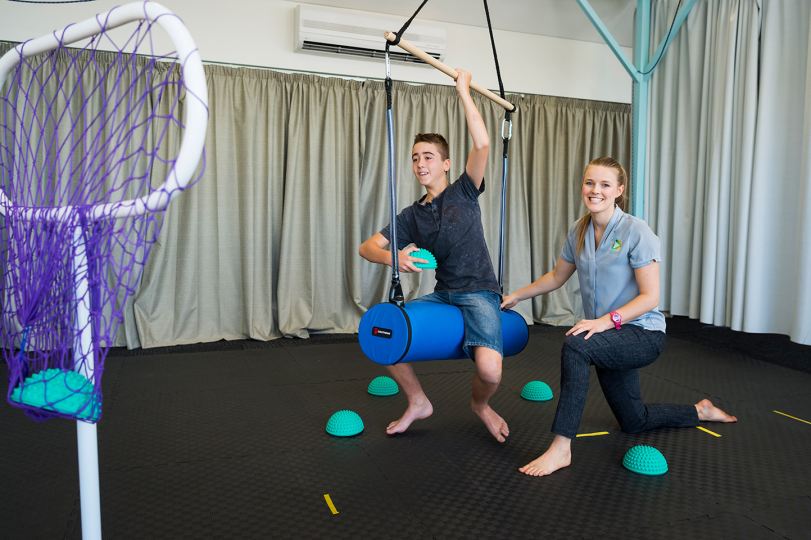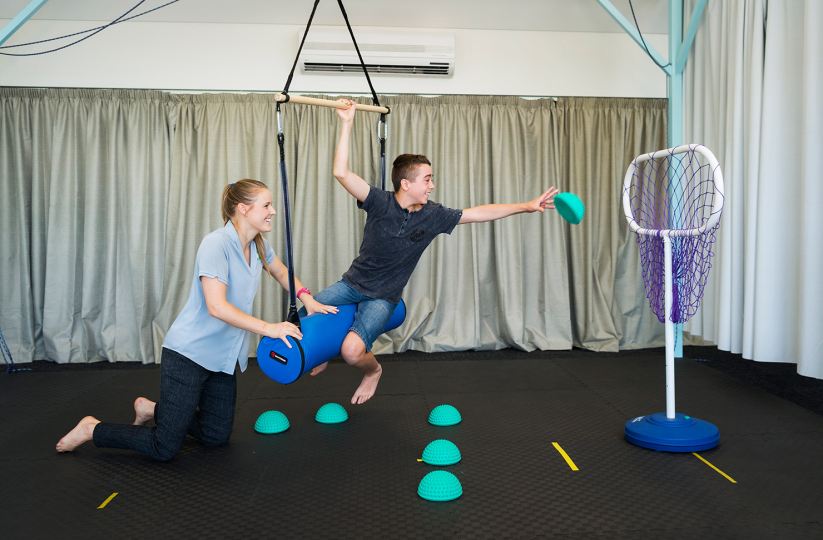Master of Occupational Therapy (Graduate Entry)
Degree Level Postgraduate
Year 2025
You're considered an Australian student if you are any of the following:
Degree Level Postgraduate
Year 2025
Mode
On-campus
Applicants must:
All applicants are required to demonstrate their eligibility by completing the Additional Information Form and providing supporting evidence.
Prerequisite courses
Applicants are required to provide evidence of satisfactory completion of the following prerequisite courses:
Note: Applicants who are overseas trained occupational therapists and are eligible to apply for assessment by the Occupational Therapy Council of Australia to meet the qualification requirements for registration by the Occupational Therapy Board of Australia are not eligible to apply for this program.
Preliminary assessment of pre-requisite courses not available. See Additional Information Form for details.
International: only available to UniSA graduates with relevant undergraduate degree within last 10 years. Applications open for 7 days from last Monday in November.
1ComparED (QILT) Graduate Outcomes Survey 2021-23– Full-time Employment Indicator (Domestic Undergraduate). SA public universities. 2Results in Clinical Sciences – 2018 Excellence in Research for Australia (ERA). 3Ranked #43, 2024 THE Young University Rankings.

Designed for students who have already completed a bachelor’s degree and meet entry requirements, this intensive master’s degree will qualify you to practise as a registered occupational therapist with two extra years of study.
Occupational therapists empower people to live full and rewarding lives. They help people of all ages achieve their goals, optimise their lifestyles and actively participate in society irrespective of limitations.
At UniSA, you’ll learn from registered occupational therapists and accomplished researchers at the top of their field. With a strong focus on practical skills, you’ll complete 1,000 hours of field placements across health, rehabilitation and community agencies, children’s centres, kindergartens, schools and aged care facilities. This prepares you for professional practice and a seamless transition from study to work.
Students who undertake activities where interaction with patients/the public is required for their degree, such as field or clinical placements/visits and in University clinics and gyms, must demonstrate they meet mandatory pre-placement conditional requirements. These include criminal history clearance, a Working with Children Check and immunisation requirements. Please visit the Clinical Placement Unit for information on key requirements, and to access the full student checklists.
All students enrolled in a program leading to professional registration must be registered with the relevant national board. The student registration process is undertaken by the Australian Health Practitioner Regulation Agency (AHPRA) with the University providing notification to AHPRA following enrolment in the program.
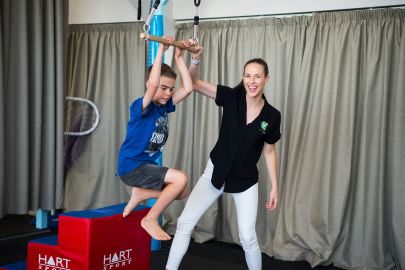
In the Master of Occupational Therapy (Graduate Entry), you’ll study the major theoretical approaches and practical skills occupational therapists use to work across all types of clients.
In the first year, you’ll focus on foundational occupational therapy knowledge and skills in the areas of:
In the second year, you’ll apply your knowledge to areas of practice such as mental health, chronic conditions and community, rehabilitation and return to work. As part of this, you’ll work on a collaborative project with a community agency.
You’ll get hands-on experience in real scenarios when you complete 1,000 hours of field placements. Emphasis is placed on preparing you to become a contemporary health professional, so with industry placements built-in to your degree, you’ll get to work on building your professional relationships and networks while you study.

This degree is a high-demand, highly intensive program with core occupational therapy knowledge condensed into two years of study.
As an occupational therapist, you’ll make a real difference in people’s lives. You’ll help people overcome any barriers they have – physical, environmental or emotional – to doing any activity big or small, and empowering them to live their best lives.
With UniSA, you’ll benefit from more than 50 years' experience in occupational therapy education and research. We’re proud of the rich knowledge base we’ve created and continue to evolve in line with industry and our above world-class research1, which means your career path is always informed by evidence-based practice.
Students who successfully complete this degree will be eligible to register as an occupational therapist through the Occupational Therapy Board of Australia/Australian Health Practitioner Regulation Agency (AHPRA)
12018 Excellence in Research for Australia (ERA).
Gain insight into the rewarding careers of UniSA Occupational Therapy graduates, Rochelle Mutton and Jordan Liseno. Rochelle is the Owner and Director at Motivate Kids and employs Jordan as part of her growing team.
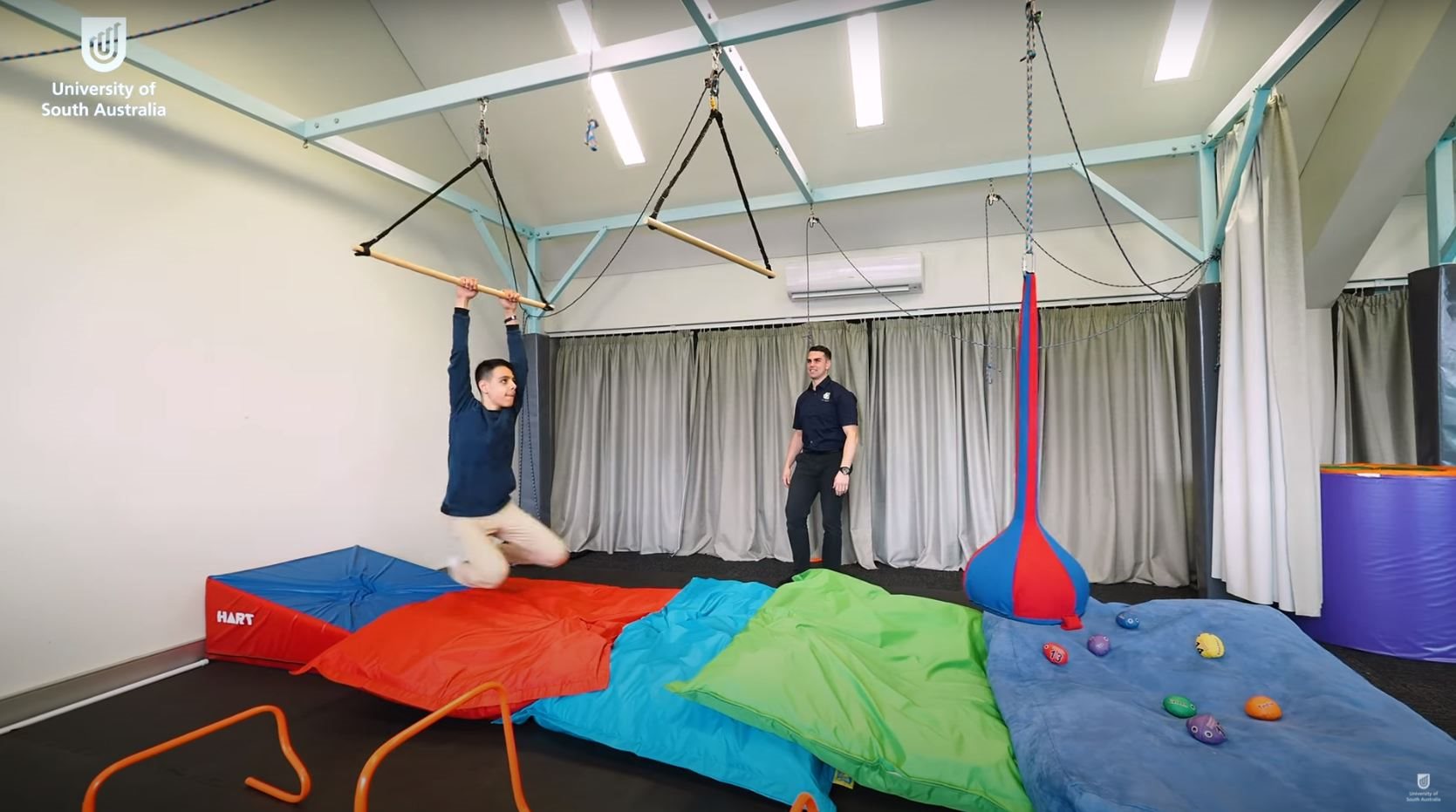
A successful occupational therapist is professional, an excellent communicator, observant, logical, a critical thinker, and evidence based. You’ll be the type of person who enjoys working with people; and be mentally, emotionally and physically capable. This field of work is immensely rewarding and can offer exciting challenges, assisting people in the everyday occupations of life.
You can gain employment in a range of settings, including:
This degree prepares you for working overseas, as the qualification is recognised in most countries.
Some key areas of activity where occupational therapists provide support include:
This program is accredited by the Occupational Therapy Council of Australia Ltd (OTC).
This program is approved by the Occupational Therapy Board of Australia for the purpose of professional registration as an occupational therapist in Australia.
This program is approved by the World Federation of Occupational Therapists
Have any questions? We're here to help! Contact Adelaide University's Future Student Enquiries Team.
Every year, over 2,500 UniSA students are supported in their studies through scholarships and grants worth millions of dollars. Check out the scholarships below. One of them may be perfect for you. Visit our scholarships page for more.
Available for students who are interested in undertaking specified activities with the aim of enhancing the overall student experience at UniSA.
Travel Grants are available to participate in our Study Overseas Programs. UniSA has agreement with over 80 institutions globally.
Our campuses have fantastic facilities including modern lecture theatres, libraries, workshops, laboratories, tech zones, and spaces that simulate real work environments. You’ll also find student gyms and campus sport activities to keep you active. We also offer flexible study options, with online resources available for accessing lecture recordings, virtual classrooms, library resources and learning support.
Adelaide also has a variety of accommodation options to suit different requirements and budgets. Options include dedicated student accommodation and private rentals. See our long-term accommodation pages, or explore our student accommodation by Scape on Bank Street in Adelaide’s lively cultural precinct, an ideal location for students. It is within easy reach of UniSA’s city and metropolitan campuses, Rundle Mall shopping, the Central Market, Chinatown, and the West End’s vibrant nightlife. It is also across the road from the Adelaide train station, and on bus and tram routes.
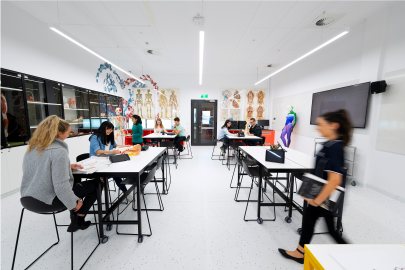
You’ll have access to:
You’ll also get to use a range of on-campus spaces including modern lecture theatres, libraries, collaborative teaching rooms, and relaxed student lounges.
With over twenty years of knowledge and research experience in Occupational Therapy, I make sure students learn with the latest information to support innovative and responsive practice. With a strong focus on primary health care, my teaching combines the theory and practice of the field, preparing students to understand the full scope of their future role. I aim to have all students graduate confident to face challenges raised by clients, families, health services and policymakers alike when they step into their careers.
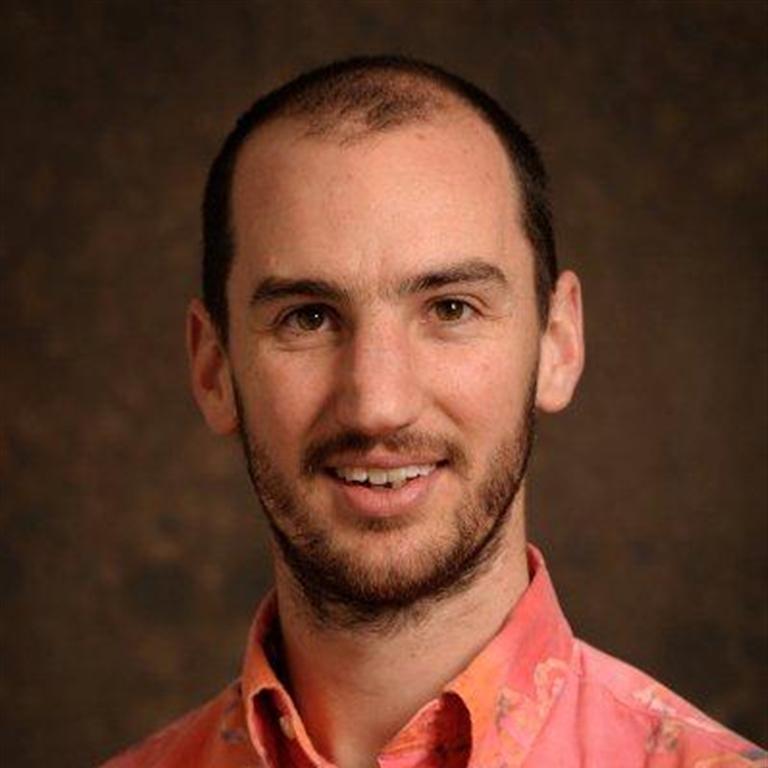
The way you apply for UniSA will depend on the undergraduate or postgraduate coursework degree you're interested in studying.
The majority of applications are made via the South Australian Tertiary Admissions Centre (SATAC). Check out more information on the SATAC website and follow the appropriate process for your degree of interest.
There are a small number of degrees that you need to apply for through direct application processes. The process you need to follow will be listed on the 'How to Apply' section of the degree homepage, but you'll also be taken to where you need to go if you hit the 'apply' button.
If you are interested in studying one of our 100% online degrees you'll need to apply directly to UniSA Online.
You can find more information about the application processes for UniSA on our How to Apply webpage.
If you're more interested in applying for a postgraduate degree by research, check out and follow the information in our step by step guide to applying.
Applications for all degrees will close ahead of study commencing, but the timelines may vary for undergraduate and postgraduate degrees.
The deadline to apply to study a degree at UniSA for semester one (commencing late February) and be guaranteed equal consideration is generally in very late November or early December. While you may be able to apply after this date, you are not guaranteed to be considered equally with other applicants and your application may not be assessed in time for the main round of offers. More competitive degrees may not make any offers after the main offer round. Find more information on the Key Dates section of the SATAC website, but you can also call the Future Student Enquiries team for more information on 08 8302 376.
Many postgraduate by coursework degrees do not have set closing dates. The exceptions are highly competitive degrees, so it is best to check – either on the degree homepage on the SATAC website or by checking with our Future Student Enquiries team.
As most postgraduate applications are assessed as they are submitted and offers are continuous, there are no set closing dates for applications. Degrees can be filled and closed with little notice so it is best to apply as soon as possible to avoid missing out on a place. For more information, please contact our Future Student Enquires team on (08) 8302 2376 or submit an enquiry.
You may be eligible for credit or advanced standing for your chosen UniSA degree based on your previous studies, if they are in a related area and completed within a certain timeframe. Receiving credit or RPL will reduce the number of courses you undertake within the degree, and may also reduce the overall duration of your degree. You can read more about our pre-existing credit agreements through our online Credit Assessor. If you have related industry experience, you may also be eligible to receive recognised prior learning (RPL) for this experience. Credit and RPL is assessed by the Program Director once you've received an offer, and you apply through UniSA's current student experts, Campus Central.
Future Student Enquiries welcomes the opportunity to meet with you to discuss your study options at UniSA. We can discuss degree information, entry requirements and pathways, applications, general career outcomes and student life, so you have the information to make the best study decision for your future. Head to our Book an Appointment webpage to find a date and time to speak with us, and take your next steps on journey to university study.
